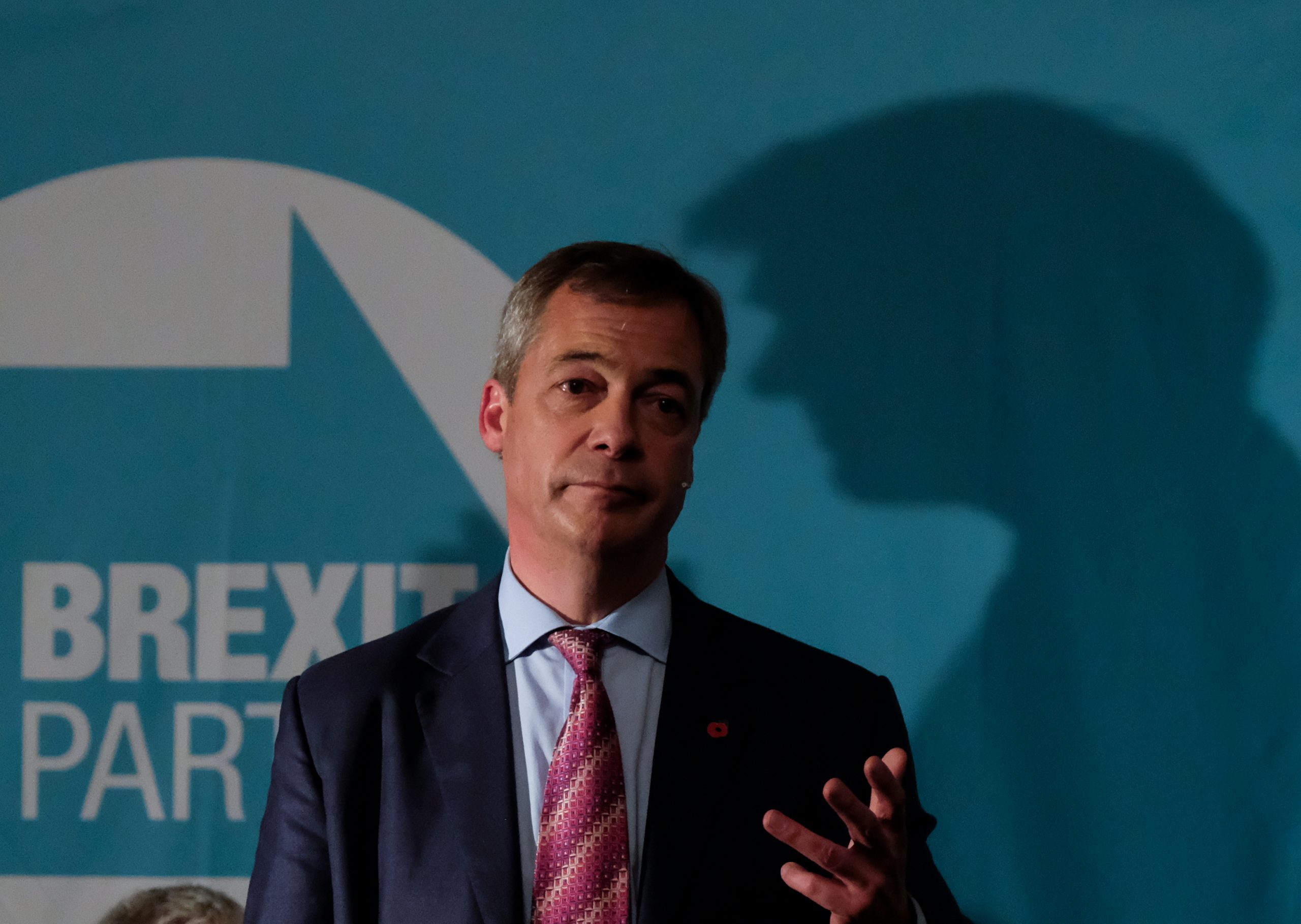
It’s been less than two weeks since Nigel Farage launched his general election campaign, when he said that he would field a full slate of candidates across Britain. So why has he U-turned?
Because he’s running scared.
Farage admitted as much in his press conference yesterday. He is worried about the threat to Brexit posed by the Liberal Democrats. “My real concern about that,” he mused “is what would happen if the Remainer parties could get between them 325 seats in parliament.” He was concerned that seats from south west London, like mine, across Hampshire and all the way to Land’s End would fall to the Liberal Democrats. He is worried that we could deliver the People’s Vote – and win the democratic mandate to stop Brexit.
He knows the British people have changed their minds on Brexit.
And what’s more, Boris Johnson knows it, too. The Conservatives are so petrified by the Lib Dem threat to their party, that Johnson has leapt into bed with Farage and done the deal with the far right that he said he’d never do.
Johnson appears to have given Farage the policy commitments that the Brexit Party was looking for – a promise that a Johnson-led Conservative government would sign no agreement with the EU closer than a weak Canada-style free trade agreement – and a guarantee that stage two of Brexit would “only” last yet another 12 months.
This is despite warnings from trade experts and former Tory Ministers like David Gauke that it is ludicrously unrealistic to believe that a serious trade deal can be struck agreed in this “short” second stage of Brexit – and that such a deadline risks a no-deal Brexit disaster.
Farage was looking for a deal – but it takes two to tango. With these commitments, Johnson has made the Conservative Party safe for Farage and his friends to vote for.
This is Nigel Farage – the politician who unveiled a poster of Syrian refugees under the heading “Breaking Point”. Nigel Farage – the climate change denier, and a politician who says the gender pay gap exists because women are worth “far less” to their employers than men. Nigel Farage, who disgracefully stood up the morning after the Brexit vote and claimed, mere weeks after Jo Cox had been killed, that the campaign had been won without a single shot being fired. This is Boris Johnson’s new ally.
Brexit extremists in the Conservative Party will no doubt be delighted to have Farage’s endorsement – they share so many of his prejudices. But what of the remaining moderates in the Conservative Party? Surely they will be taking a sharp intake of breath at the prospect of the devil they’re now in league with.
And what of the voters? A silent majority will be appalled by the idea they are backing a Conservative candidate endorsed by Farage. Over the coming weeks, voters clinging on to a belief they should still back the Conservative Party, even in its current state, might well have second thoughts about voting for a Farage-approved candidate.
Look what else happened yesterday. Nick Boles, the moderate former Conservative minister, said he couldn’t vote for a hard-right, nationalist leader who couldn’t be trusted as prime minister (ie Boris Johnson) and instead he would be voting Lib Dem. Boles joins a long line of traditional moderate Conservatives turning away from Johnson’s Conservatives – from Michael Heseltine to Ken Clarke, from Matthew Parris to Justine Greening.
And the irony is, the Brexit Party has actually provided one of the most detailed demolitions of Johnson’s deal, from a true Brexiteer’s point of view. If you look on its website you’ll find a long list of reasons why the deal is not true to the promises made by the Vote Leave campaign – and they’re right. Not least because Johnson’s idea of Brexit changes to suit his ambitions. Johnson’s deal never figured in the 2016 referendum – back then, Johnson said we could leave and stay in the single market. Only a few months ago, he said that a customs border like his deal now, wouldn’t be Brexit.
If this appalling behaviour all sounds familiar, it’s because we’ve seen it before, across the Atlantic, with Farage’s best friend Donald Trump. Chanting slogans and simplistic words but – lo and behold – it turns out policies and politics just aren’t that simple. We can’t “take back control” while keeping all the massive benefits of Europe – just like Trump hasn’t managed to build the wall.
The misselling of pensions was a national scandal. The misselling of Brexit by Farage and Johnson is a national calamity. A farrago of undeliverable promises that has unravelled with every passing month. A national embarrassment that has already pummelled our economy and international reputation.
But it’s not too late to end the costly Brexit chaos – and Farage and Johnson know it.
In this election we can end it. Liberal Democrats are the big threat to the Farage/Johnson nightmare because we’re strong, we’re growing and we’re clear – we will stop Brexit. Farage is running scared, and his desperate attempt to shore up the vote of a radicalised hard-right Tory party and a third-rate, tinpot prime minister won’t fool anyone.





